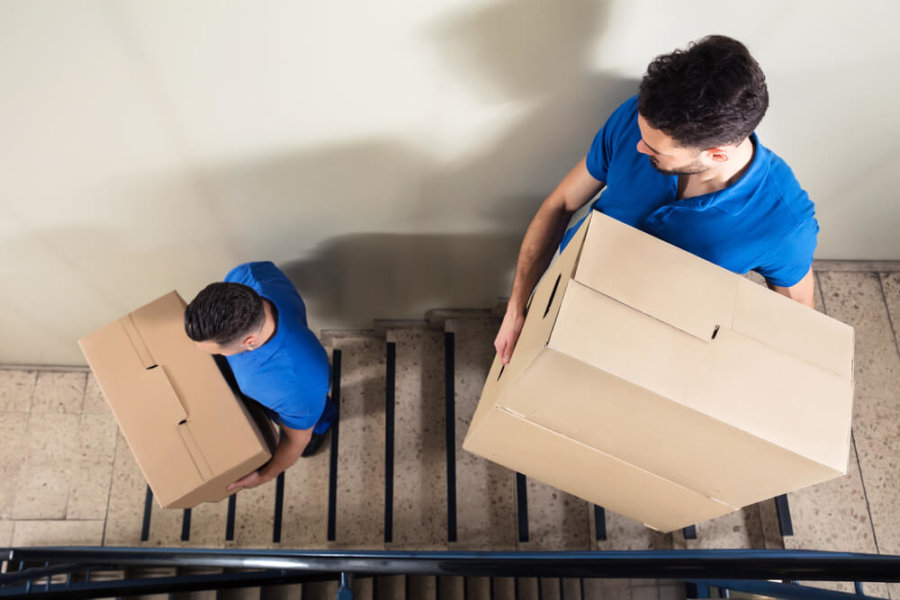Are you about to move? Hiring movers? You will need to tip them (provided they do a decent job!). But there is a lot to consider when tipping on moving, especially as moving is rarely cheap – particularly if you spring for white-glove services. Let us look at typical tipping conventions for movers, so you can ensure you are tipping appropriately- for both you and your movers!
How Much Do I Tip Movers?
How much you tip your movers depends, of course, on how well they managed your move! Typically, you will want to ensure your movers:
- Handled your items with care
- Followed your instructions
- Responded and worked with you in a timely, professional manner
- Worked efficiently
- Were punctual
You will also want to consider the difficulty of the move. Was it up five flights of stairs, or was it the ground floor? Was it during a snowstorm? Did you have a vast, delicate collection of china that took extra time and care to move safely? Adjust your tips accordingly. The more complex the move, the more you can expect to pay. Also, do note that movers will not typically move food, plants, or full fish tanks – so if they decline to move these items, that is no reason to deny them a tip!
Only you can choose how much to tip your movers, but the industry standard is to tip the moving crew 15% for local moves and 5% to 7.5% for cross-country or international moves.
Does the Type of Move Affect How Much I Should Tip?
What if you have a cross-country move that takes days? You will likely be dealing with two moving crews – the crew who sent you (and your home items and furniture) on your way and the crew who will help you unpack. While you may wish to tip more, depending on the difficulty of your move, the above rates often still apply.
If you want to cut down on time spent on your move (and the resultant tip!), you should do your best to ensure that your items are already packed, labeled (typically with the room they will go), and ready to move when your movers arrive.
When to Tip Your Movers?
It is always wisest to tip your movers after they have packed, moved, unpacked (or at least moved into your new place) all your items safely. You do not want to have tipping regret on top of mover regret if they do a poor job!
If you are worried about movers not doing an excellent job because they cannot be sure of your intention to tip well, make sure to have water and some snacks. For an exceptionally long or difficult move, consider even having a small meal on hand for them. Moving is not an easy job, and signaling your good intentions and providing basic amenities to your movers can help ensure a smooth and professional move. At the very least, you should have water on hand for them!
How to Tip – Cash, Check, or App?
Movers always appreciate cash tips – it is immediately accessible, they do not have to split tips with anyone back at HQ, and they can divvy it up between the moving crew right away. If at all possible, it is advisable to tip your movers with cash (generally, $10-$20 bills are best).
There are other options, some moving companies include an item line on their final bill of sale for tips however at FlatRate we are one of the only moving companies that will allow you to skip the walk to an ATM and tip directly from our App. At any time during or after your move, all you need to do is log in to the app and you can send a tip to your moving team and also review your movers.
When Not to Tip?
Ideally, your move goes smoothly, and you have no reason not to provide a healthy tip! But the following conditions are perfectly reasonable exceptions, especially taken in concert, to deny or seriously curtail tips:
Rudeness. As in any job, movers owe you basic respect and courtesy. Rudeness or unprofessional behavior (lousy attitude, sloppiness, carelessness, begging for tips) is unacceptable.
Damage or theft. Ideally, you never have to deal with either of these two, but they sometimes crop up. If your items are damaged or stolen, you should not pay a tip and contact the moving company directly for compensation.
Lack of speed. Some movers, unfortunately, will try to delay the move as much as possible (i.e., “milking the clock”). If you suspect this, address it – and if it does not improve, adjust your tip accordingly.
We hope this guide has helped you identify an appropriate way to tip your movers! Moving is a significant expense (and incredibly stressful!), but a good team of movers can help you secure a smooth, happy, and stress-free move.


